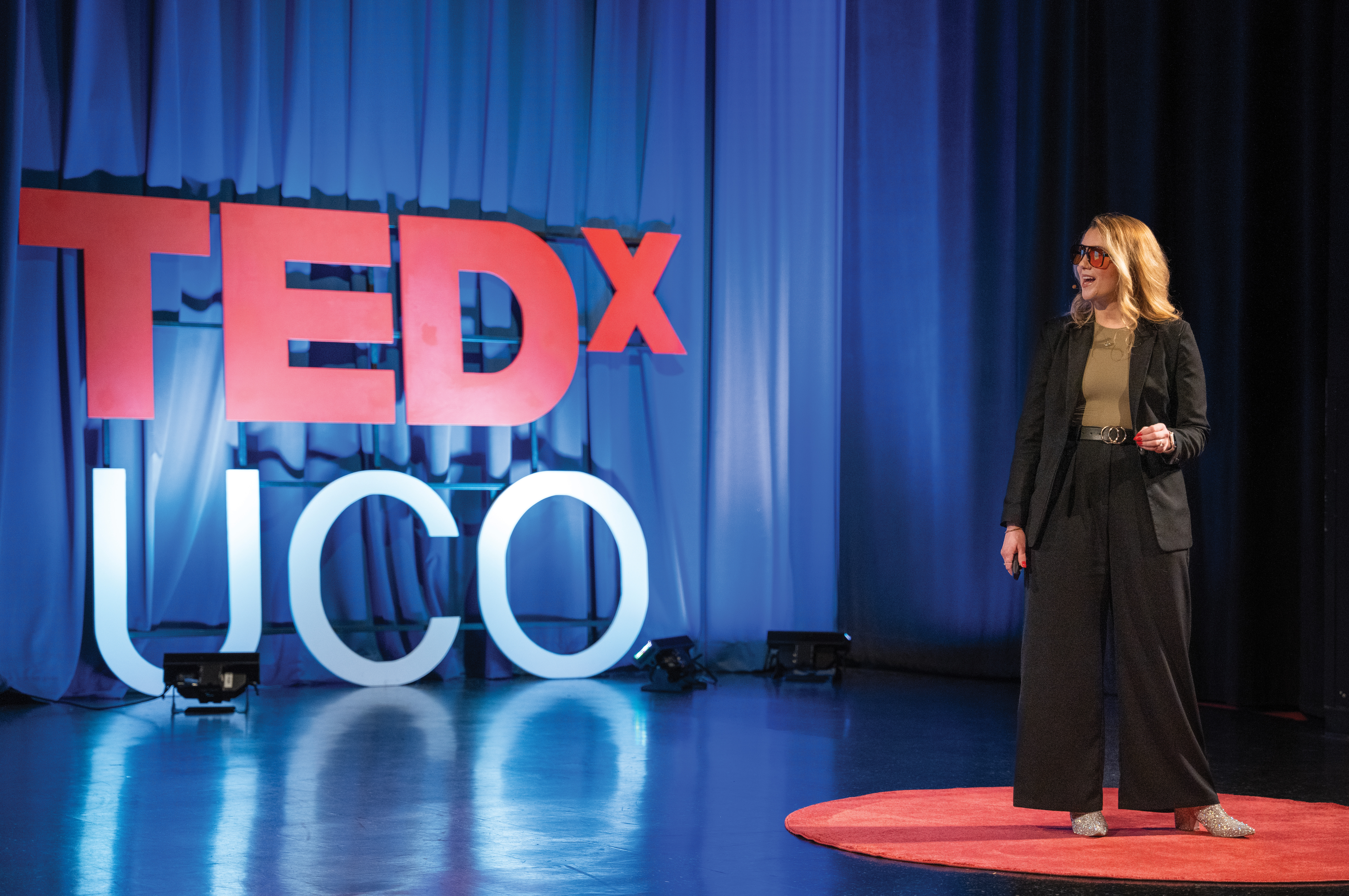TEDxUCO: inspiration, political deepfakes and love-struck jazz

Todd Barnes wants you to be delusional. This is what he told the crowd gathered on Feb. 22 for TEDxUCO in Constitution Hall.
TEDxUCO is an annual student-run event that holds inspiring speeches to encourage critical thinking. The first two speakers offered their perspectives on how to expand consciousness with this year’s theme, “Think Beyond.”
Barnes’ early career as a high school football player came to an abrupt stop when he injured his neck on the field in 1992.
“A teammate hits me head on. And I’m laying there on the ground. I was knocked out, I was knocked unconscious. I can hear him yelling still, to this day, ‘Don’t touch him. Don’t touch him.’ I realize the coaches and teammates are scared,” he said.
On the hospital bed, Barnes tried to stand, and the surgeon came back to tell him not to move, saying that they would tape him down if they had to, and this was crucial. To stand at that point would risk his life.
Unsure if he would ever hit the field again, Barnes was stuck at home to heal. His friend brought him a one-pound weight while he was laid in bed at his parents’ house, unable to move much at all. He wasn’t asking him to get better overnight, just to be a little better than he was the day before.
This mindset, Barnes emphasized, is how he became a walk-on for the OU Sooners. This mindset is what changed everything. To make progress, first you have to dream.
“If we’re going to be dreaming, and we’re going to go beyond, we’ve got to be resilient with that delusional effort. Because that effort was going to come into play,” Barnes said. It was because he tried, however delusional, that the opportunities found him.
Another session hosted by tech speaker Ashley Coffee covered the dangers of AI during an election cycle, and how voters can identify deep fakes. She emphasized that AI has trouble with patterns. Though these generated images and videos can often be scarily realistic, the clues are in the little things, she said.
Check the hands, she said. AI often has trouble with hands and fingers.
Additionally, text can be a huge clue. What seem like functional letters from far away can sometimes be gibberish up close.
If all else fails, Coffee said she always cross-references her sources. If a headline or image is only available in one place, that could be a sign that the information is fake.
Coffee recommended digital literacy education.
“There are a lot of organizations and institutions out there that provide free resources and online education to help you understand how to be an informed consumer of digital information. But more importantly, it is a responsibility for us to take time out of our daily lives to understand digital literacy, whether that’s 30 minutes a day, 30 minutes a month, we must start setting time aside to understand how technology is impacting our lives, especially in the age of artificial intelligence,” Coffee said.
At the end of this session was a surprise.
UCO’s reputation as a jazz college precedes the TEDxUCO events, so it was only natural when the sessions broke to a live jazz performance. Nick Cockerill, a senior majoring in instrumental music education, was on piano. John Torres, a junior majoring in kinesiology, was on the saxophone. The pair delighted the crowd with rising brass tones accompanied by dark and wandering piano notes that wound together to tell a unique kind of love story. The musical experience capped the morning session.

